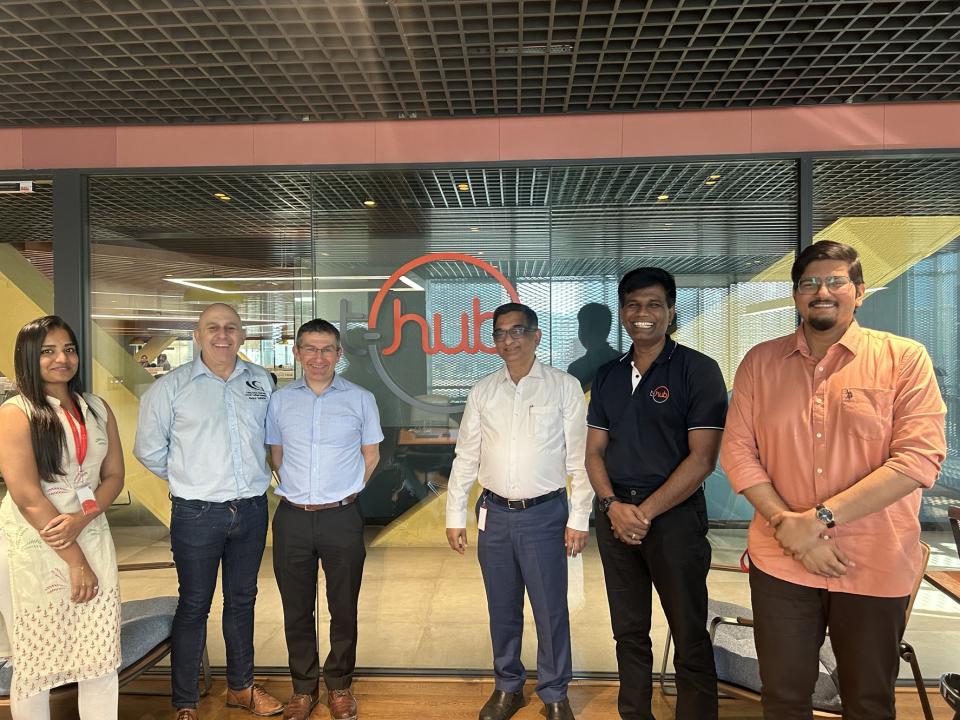
Wales-India collaborations deliver skills in electric vehicles and emerging technologies
The Global Wales programme is facilitating innovative collaborations between Wales and India to support young people develop skills for the Electric Vehicle industry and emerging technologies.
15 February 2024
As part of this activity, two Welsh further education institutions are collaborating with India’s largest innovation Hub to create new curriculum resources for young people seeking to work in the Electric Vehicle (EV) sector.
Expert automotive engineering lecturers John Hier from Gower College Swansea and Lee Summerhayes from Cardiff and Vale College have joined the team at T-Hub innovation ecosystem in Hyderabad, Telangana, India to collaborate on creating the module content. During their time in India, they will also meet with state government representatives and visit a number of Indian electric vehicle manufacturing plants to ensure the course meets the needs of industry in both India and Wales.
The new training programme will be piloted later this year with cohorts that will include Welsh further education learners and Indian graduates. The technical content will be enriched by global perspectives, which will be critical in preparing learners for employment in the EV automotive industry, whose supply chains frequently span international borders.
The work has come about through multiple partners. British Council, a key Global Wales partner, initially made the connection with T-Hub. As a result, Global Wales made introductions, and the visit, to further the collaboration, has been supported via funding from Taith.
The Global Wales programme is also facilitating Welsh further education collaborations in Electric Vehicle technology in the southern Indian states of Telangana and Karnataka. Subject experts from NPTC Group of Colleges and Grŵp Llandrillo Menai will join with the Research and Innovation Circle (RICH) in Hyderabad to conduct an assessment of Electric Vehicle technology in manufacturing sites in the two states.
The research team will share their findings with both Indian state governments later this year. This will form a basis to develop further skills collaboration programmes supporting youth employability and the automotive industry’s transition to a low carbon economy.
Developing a national skills base that can work with emerging technologies is an important part of the transition to sustainable industry for both countries. The UK has pledged to meet the net zero target for greenhouse gas emissions by 2050; India has committed to meet the net zero target by 2070.
Welsh universities are also working with emerging technologies and start-up enterprises at the innovation ecosystem in T-Hub, which is the world’s largest technology incubator. In 2023, Global Wales facilitated the matching of Welsh university academics with start-up enterprises incubated by T-Hub which supports more than 2000 start-ups.
The academics provided mentoring and guidance for technology start-ups in the fields of health and life sciences, cyber security, and energy and the environment. This year, students at Welsh universities will benefit from working with the start-up Hub, with twelve students selected to undertake virtual internships with six Indian start-up tech firms during summer 2024.
The experience will benefit both students and start-up enterprises, as students gain valuable exposure to the fast-moving world of technology start-up businesses, and the start-ups gain the experience of skilled Welsh undergraduates who bring academic rigour and new perspectives to the enterprises.
